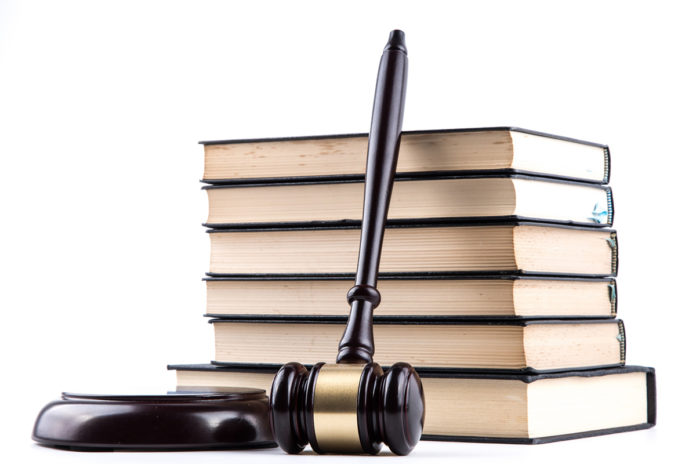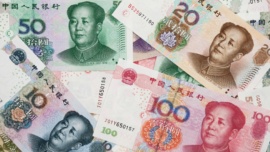Lawyers have suggested that the current law that prevents appeals for trials involving high officials is unfair.
Pronounced at the High Court on Friday, the city’s former Prosecutor-general, Ho Chio Meng, has been sentenced to 21 years in prison, after being found guilty on over 1,000 charges of illegal activities. The 62-year-old has demanded an appeal.
But according to the organisational judiciary law, as explained by lawyer Chang San Chi, cases involving individuals in special positions, including the Chief Executive, Secretaries and other major officials, are heard at the Court of Final Appeal in the first instance, leaving no possibility of an appeal.
A similar situation also happened in case of the former Secretary of Transport and Public Works, Ao Man Long over ten years ago.
“For sometime that law should have been amended, as high officials cannot see their rights (including the right to appeal) restricted for that reason,” commented lawyer Pedro Cortés.
A similar opinion is also held by lawyer Pedro Leal, who was also the defending lawyer of one of the nine other defendants in Ho’s case. He believes it is unfair that the law prevents high officials from enjoying basic rights that should be enjoyed by everyone.
“The criminal law allows everyone to appeal,” said Mr Leal. “Even in a simple case of a traffic fine, people can appeal, and Mr. Ho Chio Meng cannot appeal because there is no a higher court beyond the Top Court.”
In his opinion, Mr Leal believes that the trial of the ex-official should have been heard at the Court of Second Instance, and then it could have proceeded to the Final Court if an appeal were made.
He also pointed out the sentence from the Top Court would “highly affect” the decision that is to be made at the Court of First Instance, where the other nine defendants of the case had their trials heard.
“The other defendants are not the defendants at the Top Court, but they are being referred to the decisions made [at the Top Court],” pointed out Leal. “[The defendants] could not have the opportunity to defend themselves at the Top Court.”
Even if the defendants appealled and made it all the way to the Final Court, said Leal, “they will be judged by the same judges who made the decisions for Ho Chio Meng.”
Ho’s lawyer, Oriana Pun told the press after the sentencing that further actions can only be determined after they have studied the judgement.
“It is in accordance with the law that the Final Court of Appeal rules the case in the first instance,” said Pun. “But from our perspective, the ruling is not the final one until an appeal has been made.”
She further explained that it is a basic right to appeal, as stated in the Basic Law as well as in the United Nation’s Human Rights Council.
When asked if an appeal is impossible, Pun said they would seek out any possible mechanisms to assist Ho if he so requests.
Regarding the prison sentence of 21 years, Pun expressed that the team was disappointed with the convictions.
“It is another problem for the terms of imprisonment. We insist that some of the facts do not have strong support over the majority of charges,” said the lawyer.
The convictions
The charges against the ex-official included the crimes of embezzling public funds for sharing economic interests, huge and ordinary fraud, aggravated money laundering, and initiation and leading of criminal syndicates.
The 62-year-old was originally charged with a total of 1,970 offences, but this number was later reduced to 1,536 with some of the charges being combined.
Ho was arrested in February last year and his trial began last December.
Representing the Court Panel, presiding judge Song Man Lei stated that the Court had ruled that the majority of charges in the indictments were true, saying that “the case is very serious and rare”. The Panel criticised the ex-official for knowingly breaking the law, and as such decided to favour imprisonment over a fine.
Moreover, the Top Court also ruled that Ho will have to compensate the Prosecution Office (MP) by paying a total of MOP75.92 million.
According to the ruling, Ho himself needs to pay compensation of MOP18.37 million, while MOP43.23 million is to be paid together with another defendant of the case Wang Xiandi, and a further MOP3.32 million with other defendants including his older brother (Ho Chio Shun), brother-in-law (Lei Kuan Pun), Wong Kuok Wai and Mak Im Tai for the operation of a criminal group.
Moreover, the ex-official will also need to further compensate the MP by paying another amount of MOP49.90 million, together with Antonio Lai Kin Ian and Chan Ka Fai who were also defendants in the case.
The amounts that are to be paid together with the other defendants will be confirmed after their sentences are pronounced next month at the Court of First Appeal.
In addition to the compensation that needs to be paid, another HK$1.18 million of illegal gains and assets of MOP12.10 million, which Ho and his wife Chao Sio Fu did not declare, will all be confiscated by the administration.
“I will appeal […] never [have I] received any [illegal] money […] it is injustice!” howled the ex-official, while he was being pulled away by officers after Judge Song pronounced the sentence.
Meanwhile, Ho’s sister Lucia Ho, who came from Hong Kong to attend her younger brother’s sentencing, said she was appalled by the ruling.
“God is watching what you are doing!” Ms. Ho stated when she came out of the Court. “The last judgement is made by God.”
Ms. Ho said that the sentencing was unfair, given the weakness of the evidence presented and the arguments made by the defendant’s team.
“I read the news and I can’t find one piece of evidence that proves he [Ho Chio Meng] obtained benefits from corruption,” remarked Ms. Ho, while saying that they would appeal to the central government if an appeal is possible.
“Sunshine is the best disinfectant”
After the Court’s ruling, the MP released a statement indicating that the MP would respect the Top Court’s fair judgement, while stating that “Sunshine is the best disinfectant”.
The prosecution of the former MP head, stated the MP, was a duty that the MP had to carry out legally and objectively, with everyone being equal before the law.
The MP pledged to continue to enhance internal management and strictly adhere to its duties as specified by the Basic Law.
—
Ho Chio Meng
Ho Chio Meng was born in Macau in 1955. He embarked upon his career as a public servant in 1983 as an assistant judge. He later served the then-Portuguese Government as a co-ordinator of the High Commission Against Corruption and Administrative Illegality, which was the forerunner of the Commission Against Corruption.
In 1995, Ho was promoted to Deputy High Commissioner of the then anti-graft body and appointed several times as the acting leader of the department.
In 1999, nominated by the city’s first Chief Executive, Edmund Ho Hau Wah, Ho was appointed the first Prosecutor-general of the Macao Special Administrative Region. He led the Prosecutor’s Office until December 2014, when the incumbent CE Fernando Chui Sai On enacted a major reshuffle of his cabinet for his second term.
Ho was once tipped as a possible challenger to incumbent Chief Executive Fernando Chui Sai On before Chui sought re-election in 2014.
However, after stepping down from the Prosecutor’s Office, Ho did not leave the government. In February of 2015, the then 61-year old was appointed as co-ordinator of the Committee on Criminal and Legal Studies, with a tenure of two years. According to the Official Gazette, the Committee is under the supervision of incumbent Prosecutor-general Ip Son Sang.
























